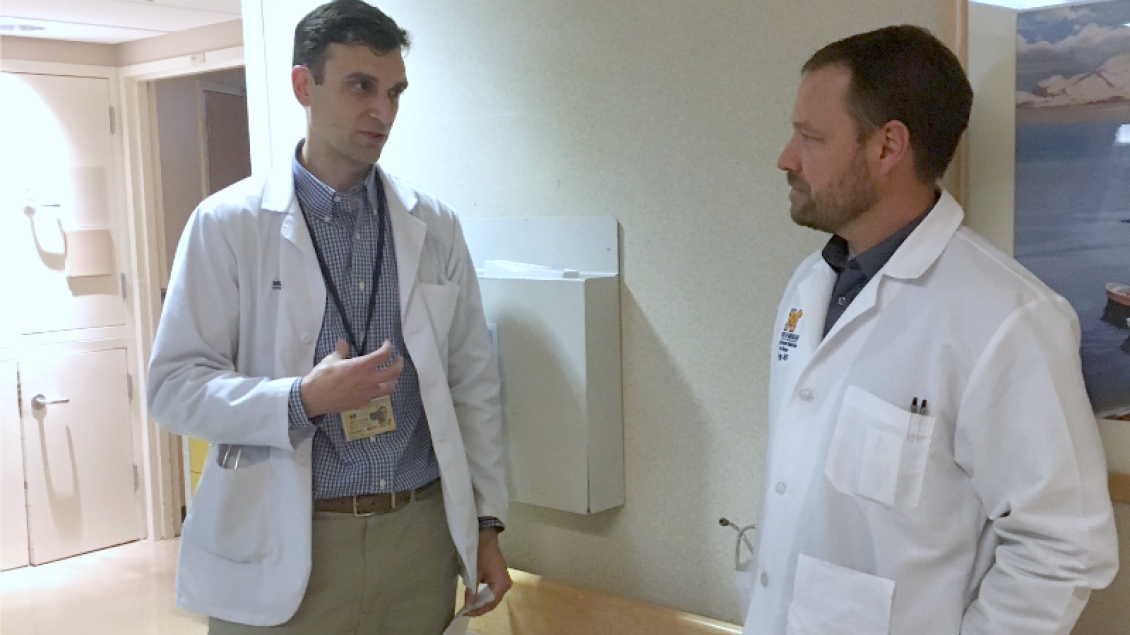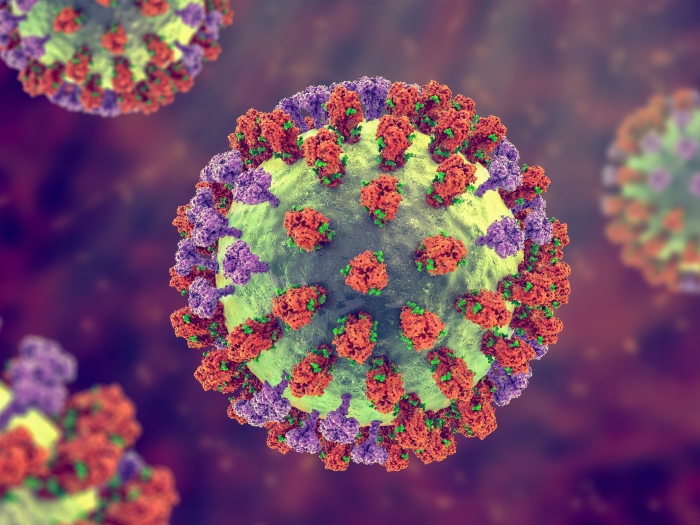-
Allergy & Clinical Immunology -
Cardiovascular Medicine -
Gastroenterology & Hepatology -
General Medicine -
Genetic Medicine -
Geriatric & Palliative Medicine -
Hematology & Oncology -
Hospital Medicine -
Infectious Diseases -
Metabolism, Endocrinology & Diabetes -
Nephrology -
Pulmonary & Critical Care Medicine -
Rheumatology

The U-M Medical School Department of Internal Medicine Division of Infectious Diseases is extensively engaged in the education and training of faculty, medical students, residents, fellows, and students.
Discover education and training opportunities to advance your career.
Our Infectious Diseases Fellowship Training Program offers clinical and research training opportunities at Michigan Medicine, including the University Hospital, numerous ambulatory clinics and the VA Ann Arbor training facilities, along with the division’s diverse programs, clinics and elective opportunities.
The Division of Infectious Diseases holds regularly scheduled conferences, including grand rounds, weekly report, journal club, fellow lecture series, and morbidity and mortality conferences. The majority of these activities are available for physicians to earn CME credit. The University of Michigan Medical School is accredited by the Accreditation Council for Continuing Medical Education (ACCME) to provide continuing medical education for physicians.
Additional conferences/CME opportunities include:
A weekly conference led by faculty, invited speakers from other institutions, or fellows. Fellows will have the opportunity to present, typically beginning with a case followed by a discussion of the relevant medical literature, accompanied by appropriate visual aids (usually computer generated slides and graphics). For selected conferences, divisional faculty members present a Research Conference summarizing their own research activities. Senior fellows are also expected to present a formal Research Conference relating to their own original work toward the end of the second year of training and a preliminary discussion of their research proposal during their first year.
Discussion of cases seen on the Michigan Medicine and Veterans Affairs Ann Arbor Healthcare System (VAAAHS) Consultative Service during the previous week. This conference is limited to Infectious Diseases fellows, participating faculty, and microbiology and ID pharmacy staff (usually 10-15 per week in attendance). The fellows or faculty present cases as “unknowns” with discussion of the cases by faculty or, on occasion, fellows.
We have a comprehensive approach to learning more about reading and interpreting medical literature. Fellows have an opportunity to review selected articles in detail, mentored by one of our clinical researchers. These articles are then discussed in a small group setting. In addition, journal clubs involving the entire division are held monthly. Prior to journal club, fellows discuss the articles with a faculty expert in the relevant content area. Fellows then present the articles and focus on how the article fits within the context of previous literature and how the findings might change practice.
The fellows are exposed to a two-year curriculum covering infections in immunocompromised hosts, hospital epidemiology, infection prevention, antimicrobial stewardship, HIV/AIDS, statistics, study design, and basic mechanisms of disease. General topics in infectious disease and parasitology are included as well. In addition, lecturers outside of the Division of Infectious Diseases (e.g. Pharmacy, Library Sciences) are invited. During the first two months of the academic years, first year fellows are provided with a “nuts and bolts” introductory series.
This conference is used as part of our patient safety curriculum. Fellows identify cases where in some way “the system failed the patient.” These cases are then discussed and, when appropriate, patient safety methodologies are applied to identify the root causes and correct the problem.
Our Infectious Diseases Fellowship Program has graduated over 100 trainees and is one of the leading programs in the country dedicated to preparing physicians for excellence in the diagnosis and management of infectious diseases and to advancing the field through research and education.
The Division of Infectious Diseases has played a major role in designing and teaching infectious diseases and microbiology courses at other departments including the Department of Ecology and Evolutionary Biology, Department of Epidemiology, Department of History, and the Department of Microbiology & Immunology.
In addition, resident education has always been an essential part of our strengths from the first year the division was established in 1967 until today. Individual faculty score high on evaluations from both resident and students, and several members of the division have won resident teaching awards.
From outstanding MD and PhD programs to comprehensive residency and fellowship programs, and many training options in between, Michigan Medicine offers limitless opportunities for our trainees.


